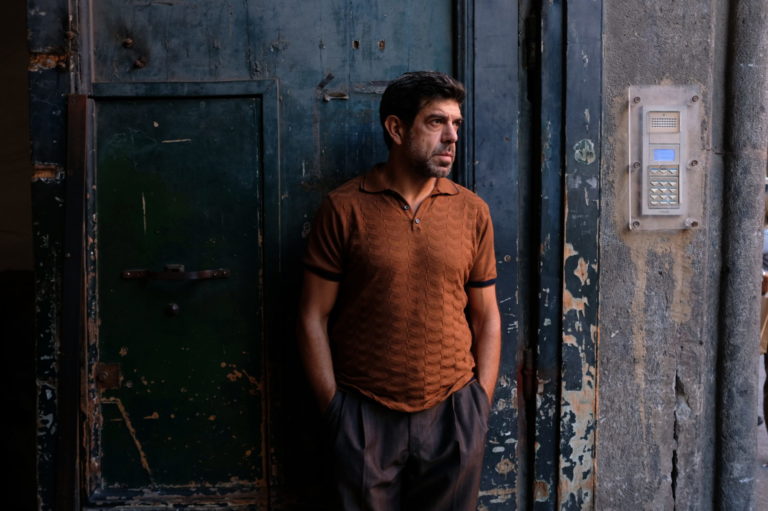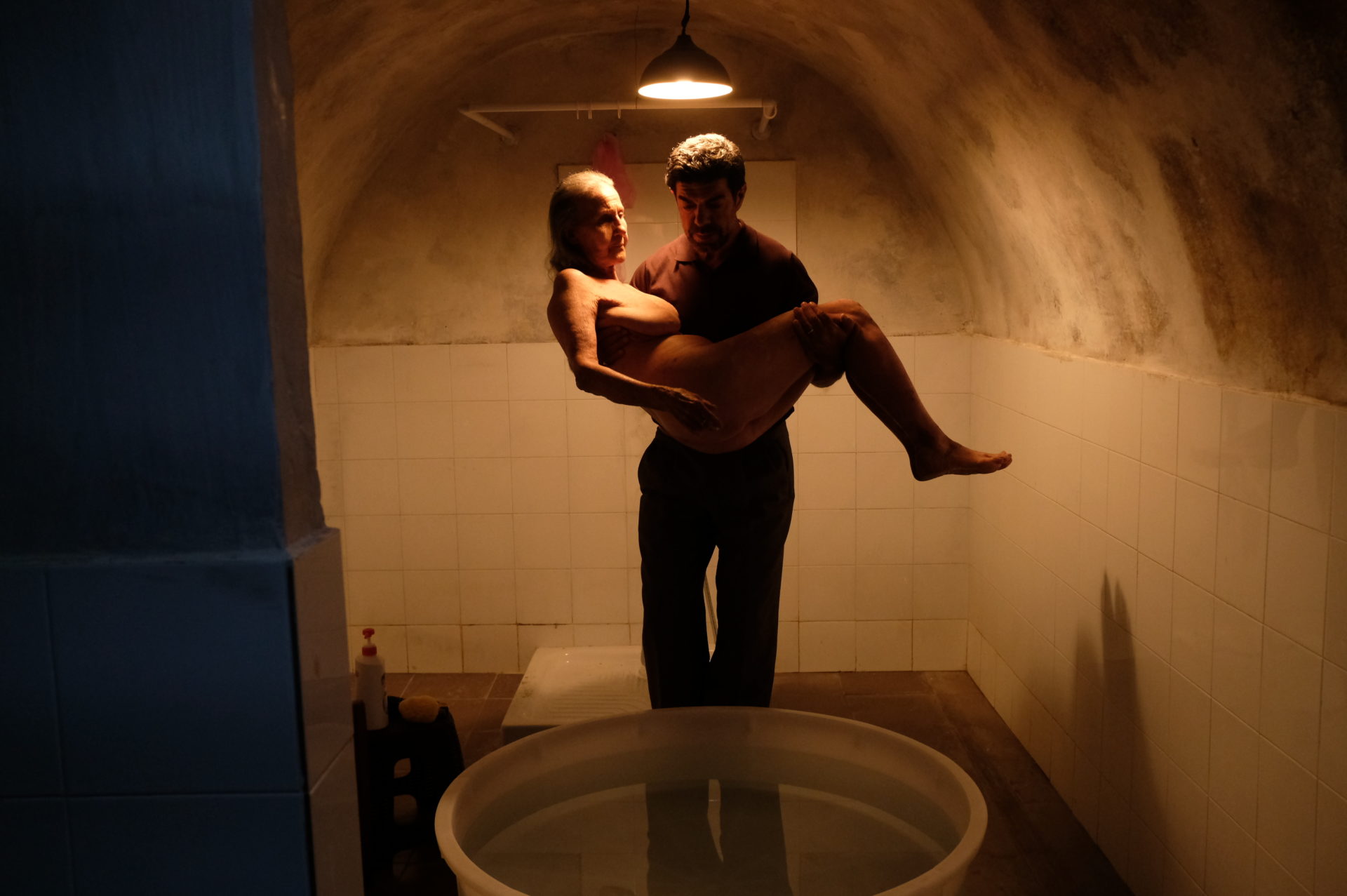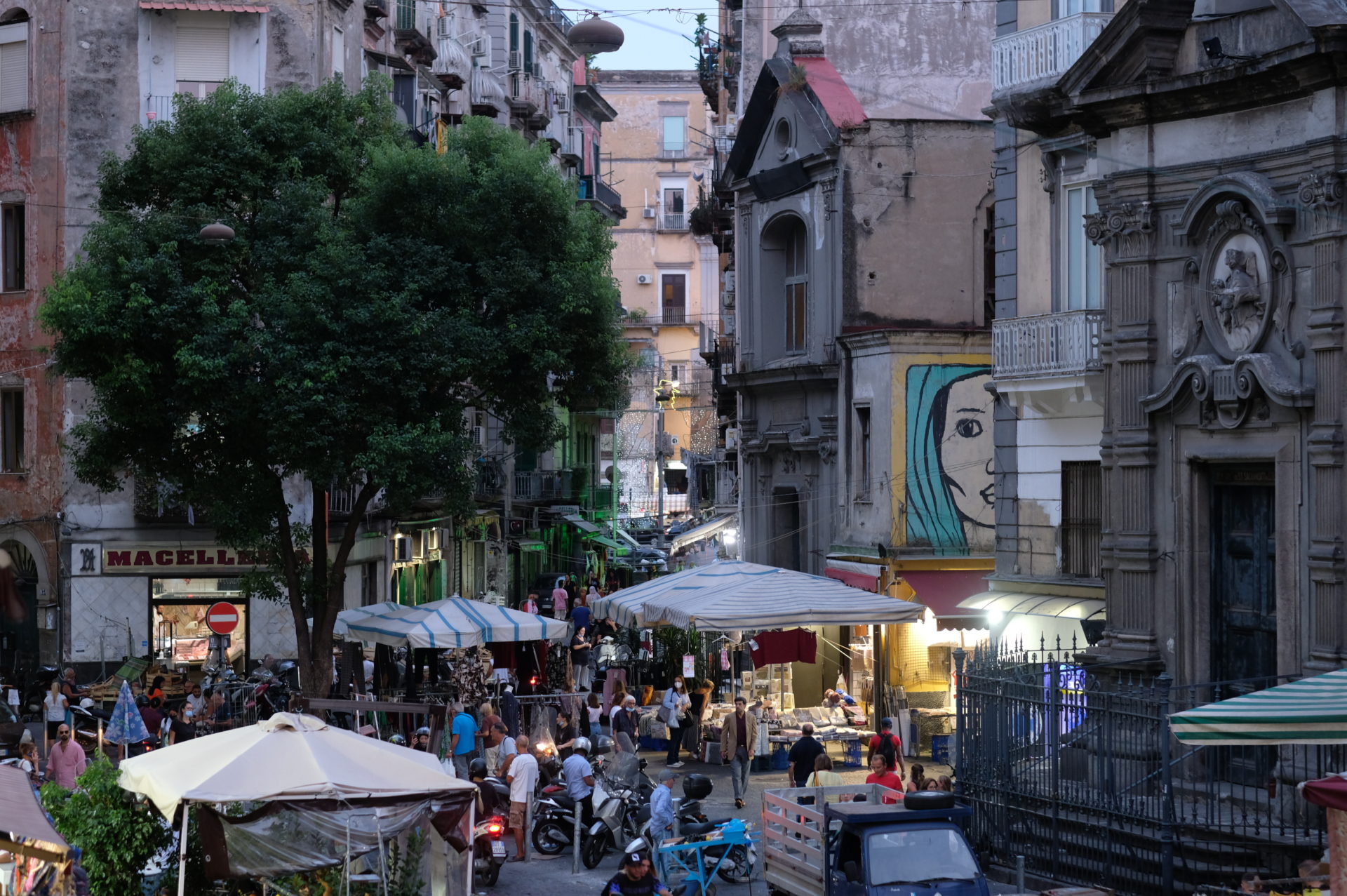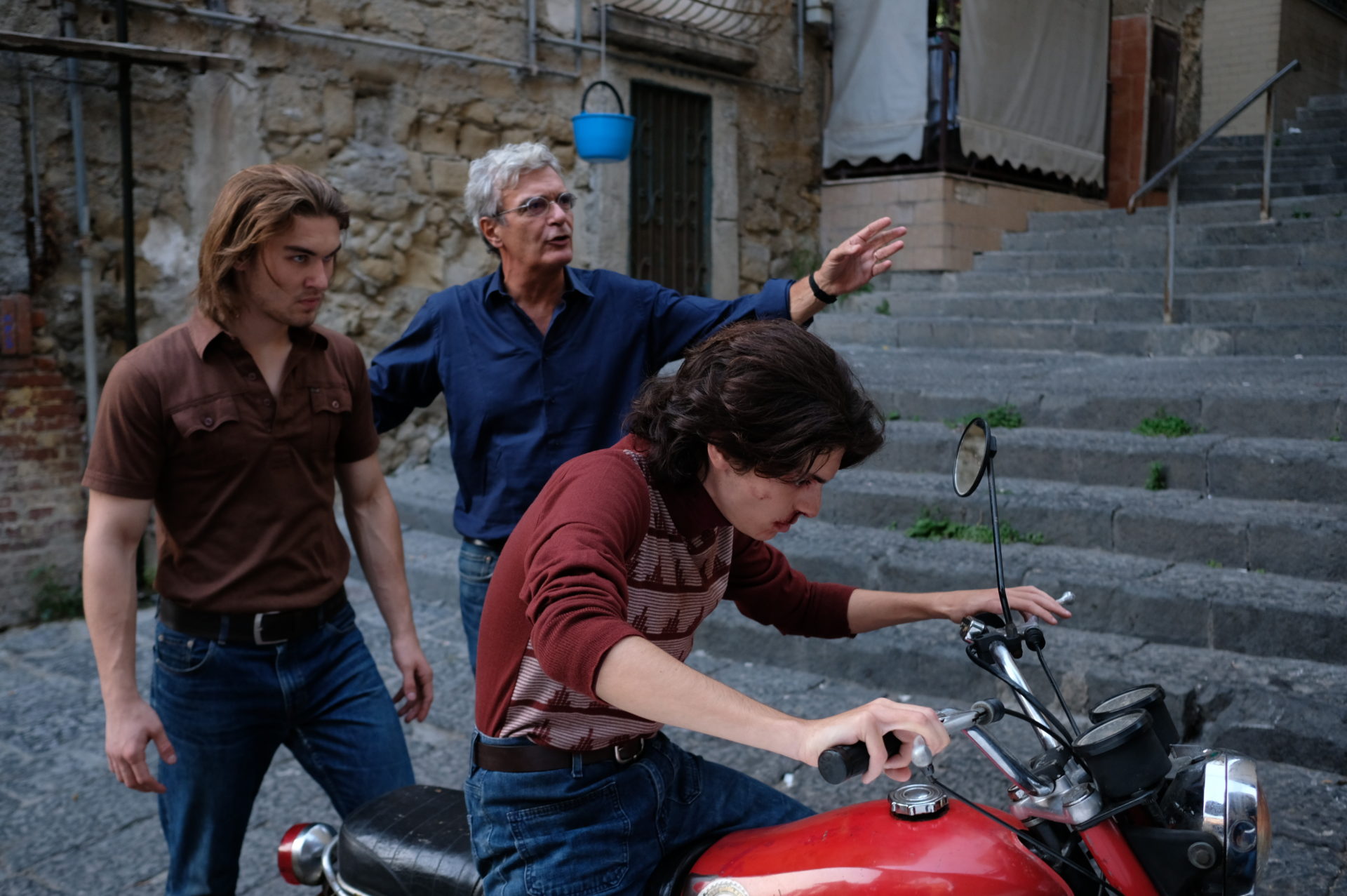
Mario Martone’s new film, Nostalgia, is set in Naples, precisely in the Rione Sanità — a neighbourhood that was historically established for the upper crust, but in modern times became one of the most infamous and degraded areas of the city. The motion picture — that adapts Ermanno Rea’s eponymous novel for the silver screen — premiered at the Grand Theater Lumiere during the Cannes Film Festival, where it triggered nine minutes of applause once the credits started rolling.
The protagonist of the film is Felice Lasco, played by Pierfrancesco Favino, a Neapolitan who fled his hometown to go to Lebanon and eventually settle in Egypt. In Cairo he found happiness: he has his own business and a wife waiting for him. Nevertheless he has an uncanny attraction towards the city of his childhood.
He has unsettled business in Naples. After spending forty years away from Italy, he decides to return to look after his elderly mother (Aurora Quattrocchi), that he left when he was just a teenager.

In this film, more than ever, Pierfrancesco Favino is Academy Award material with his brilliant performance. He starts off with a delicate Arabic accent, typical of an expat who has acquired the language inflections of the country he has been living in. But as the film progresses and the character of Felice reconnects with his roots, the metamorphosis occurs also with the pronunciation that transforms into a powerful Neapolitan dialect.
The character of Felice, is spellbound as he wanders amongst the alleys of his city, and memories of a distant life return like phantoms. He shares a harrowing secret with his childhood friend Oreste Spasiano (Tommaso Ragno), who has now become a dangerous mob boss, who is feared by everyone in the Rione Sanità. In this very neighbourhood, Felice gets acquainted with Don Luigi Rega (Francesco Di Leva), a priest who doesn’t get intimidated by local crime.
Naples represents a lost life for Felice, that he should return to as soon as possible, as he is obnubilated by the invincible force of nostalgia. This longing pertains primarily to a specific part of town. In truth, more than Felice the great protagonist of the film is the setting: Rione Sanità, a city within a city deliberately isolated from Murat’s architecture.

The Neapolitan filmmaker’s latest oeuvre is a love letter to his city. It is the chronicle of a prolonged distance, of feeling orphaned by one’s own existence. In fact, during the the press conference in Cannes, someone suggested that the film shared some tones with Roman Polanski’s Chinatown. Martone was flattered by the comparison and he agreed in finding sentimental similarities between the locations, as he said: “Both Chinatown and the Rione Sanità are cinematic places of the soul. They are labyrinths, and the novel by Rea gave me the opportunity to make a film all in one neighbourhood, because Nostalgia does not take place in Naples but in a single district of Naples, which is an enclave far from the sea. The Neapolitans themselves know little about it. I wanted to use it as a bourgeois chessboard in which the characters make their journey alone, confronting themselves with the past. But then comes the encounter with the other that determines their destiny. Since Rione Sanità is a neighbourhood with a strong human connotation, I decided to avoid a traditional staging. I wanted to throw my characters on the street, a bit like they did in the time of Neorealism or the Nouvelle Vague.”
This style is extremely perceivable in the way the characters come to life. Furthermore, Martone chooses a neo-noir approach, through a mysterious and grainy cinematography and by conveying a lurking suspense that ceaselessly looms upon viewers.

Nostalgia closes Martone’s Neapolitan trilogy after the films The King Of Laughter (Qui Rido Io) and The Mayor of Rione Sanità (Il Sindaco del Rione Sanità). Although Nostalgia’s grand finale is predictable in its cathartic explosion of doom, what remains is the captivating atmosphere created by Mario Martone. Rione Sanità serves as a universal stage for lost humanity, daily struggles, ancestral rules and a love story between man and his primordial environment.
Final Grade: B

